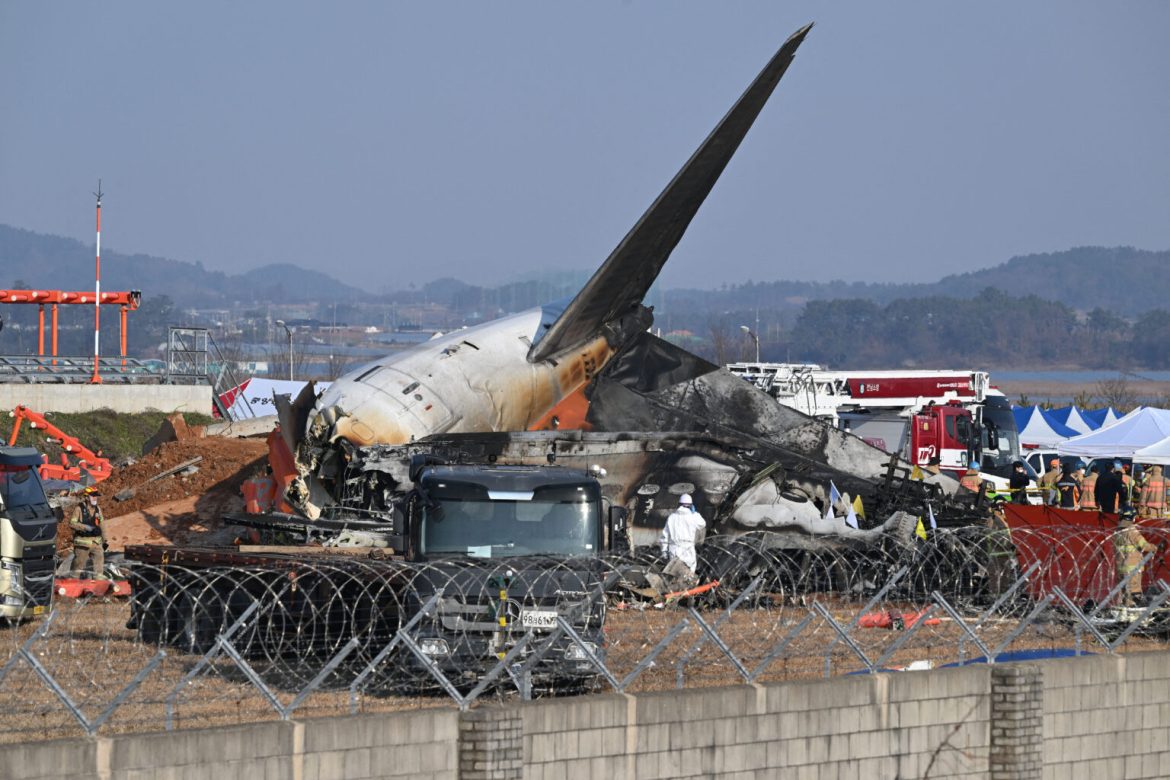South Korea’s transport ministry revealed that the flight data and cockpit voice recorders stopped functioning four minutes before Jeju Air crash, complicating the investigation.
On December 29, the plane crash resulted in the deaths of 179 people.
The Boeing 737-800, which was traveling from Thailand to Muan, South Korea, had 181 passengers on board when it crashed.
The ministry has launched an investigation into why the black boxes failed to record during the final moments of the flight.
Officials are examining the aircraft’s technical condition, maintenance history, and the age of the black boxes. They are also reviewing weather conditions, the plane’s flight path, and potential human errors as part of the inquiry.
A team of experts is analyzing the available data and wreckage to understand what caused the crash. In response to the black box failure, the transport ministry is reviewing safety protocols and may recommend upgrades to ensure future reliability of recording equipment on South Korean aircraft.
Jeju Air, a major low-cost airline in South Korea, is also under scrutiny regarding its operational safety standards.
The airline has not issued a detailed statement but has expressed condolences to the victims’ families.
South Korean and international aviation authorities are reviewing the airline’s fleet maintenance records and adherence to safety regulations.
This crash is one of the deadliest in recent history involving a South Korean airline and has raised concerns about aviation safety in the region.

